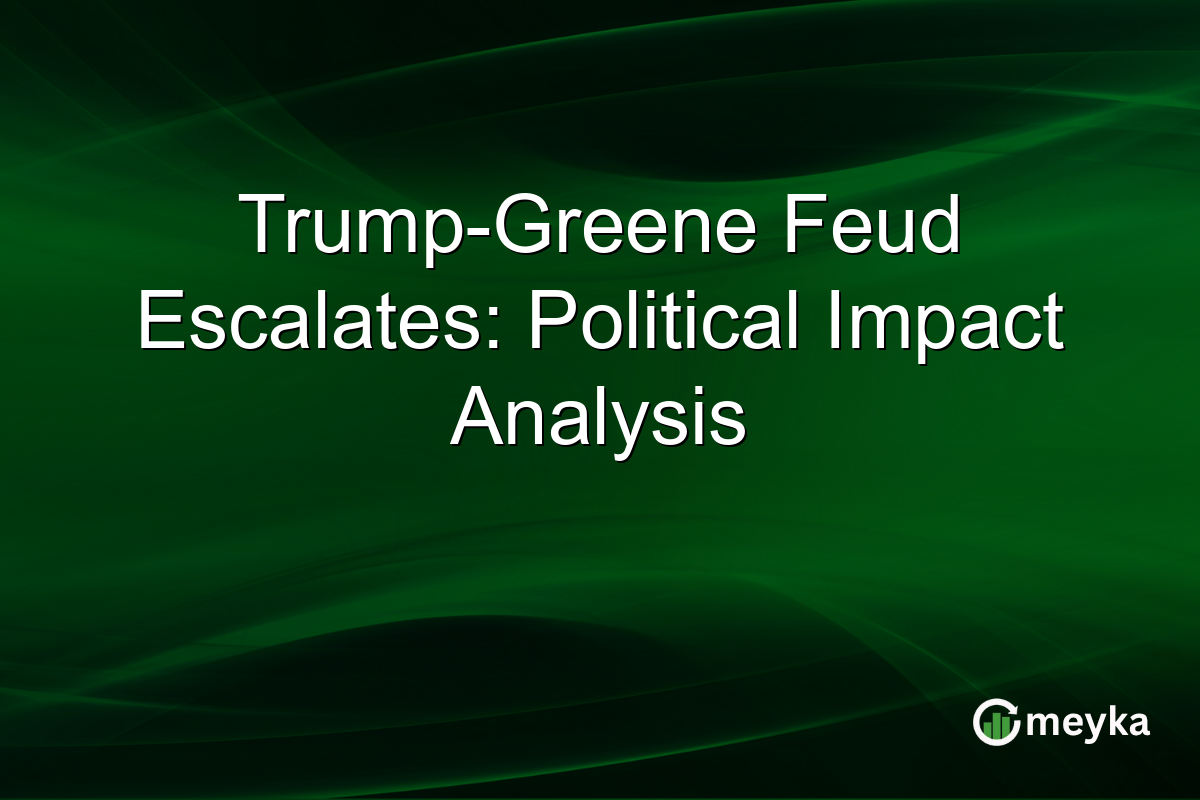Trump-Greene Feud Escalates: Political Impact Analysis
The escalating feud between Donald Trump and Marjorie Taylor Greene has taken center stage in political news, highlighting significant political tensions within the Republican Party. Trump’s recent withdrawal of his endorsement for Greene is not just a personal rift but a catalyst for broader party fragmentation. As the GOP gears up for the elections, this feud signals deeper challenges in maintaining unity.
Continue Reading on Meyka
This article is available in full on our main platform. Get access to complete analysis, stock insights, and more.
Read Full Article →





